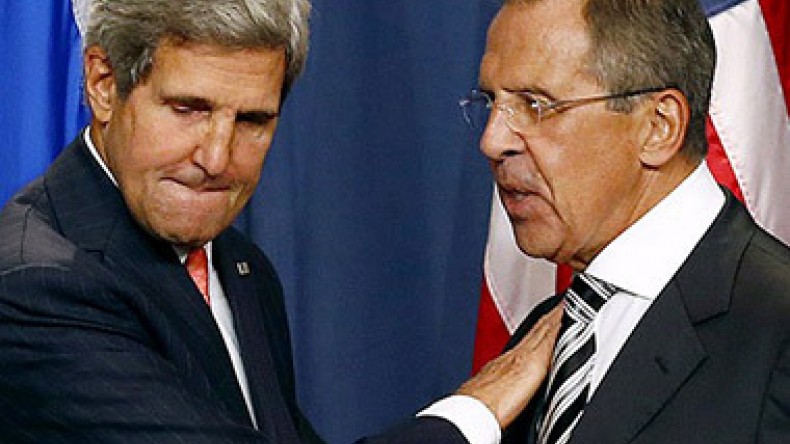
Bickering over U.S.-Russia deal focuses on possible punishment for Syria
Days after Russia and the United States reached a deal on getting Syria to give up its chemical weapons, world powers are quarreling over the details, CNN reported.
The agreement, reached by Russian Foreign Minister Sergey Lavrov and U.S. Secretary of State John Kerry over the weekend, calls for a U.N. resolution demanding that Syria turn over its chemical weapons to international control in a specific time frame.
Russia won't support any resolution that would authorize the use of force against Syria if it doesn't comply, Lavrov said Tuesday.
But the United States and France want to keep the threat of force on the table if Syria doesn't comply. Those allies say they are convinced that Syrian President Bashar al-Assad's regime was behind a chemical weapons attack in opposition areas that, according to U.S. estimates, killed more than 1,400 people.
Representatives of those three powers and the two other veto-wielding permanent Security Council members met behind closed doors at the United Nations on Tuesday to hammer out a draft resolution, a meeting a U.N. diplomat called "constructive."
"For the first time there was a discussion of the actual text," said the diplomat, who didn't want to be named discussing ongoing private negotiations. "There are well-known different views on some of the elements, but we are trying to resolve those issues."
The meetings were likely to resume Wednesday, the diplomat said.
U.N. weapons inspectors reported Monday that an August 21 attack outside Damascus had been carried out using the nerve gas sarin. Tuesday, Secretary-General Ban Ki-moon said the findings should spur member states to bring the bloodshed in Syria to a halt, urging both Washington and Moscow to "demonstrate their leadership."
Newsfeed
Videos






























